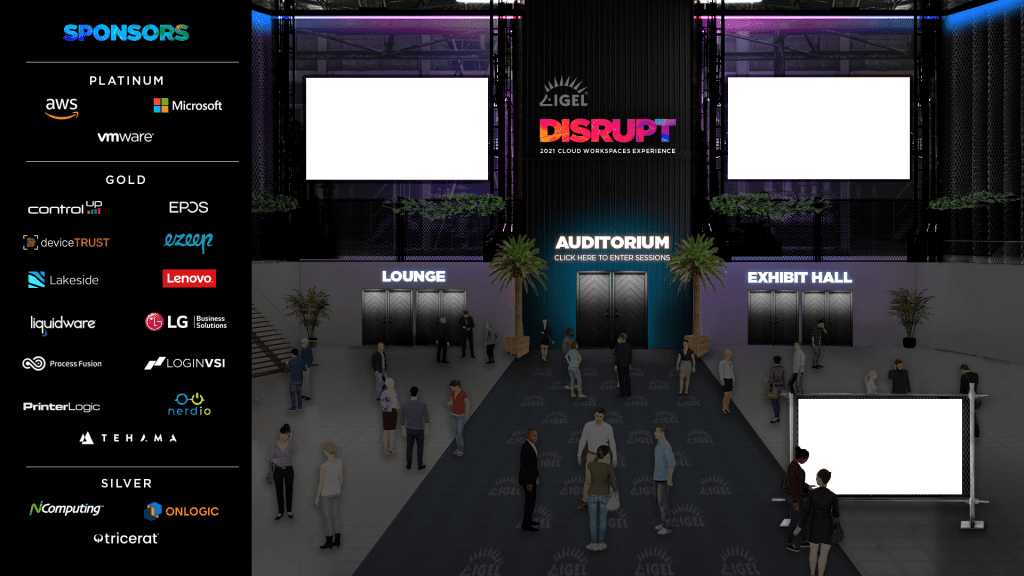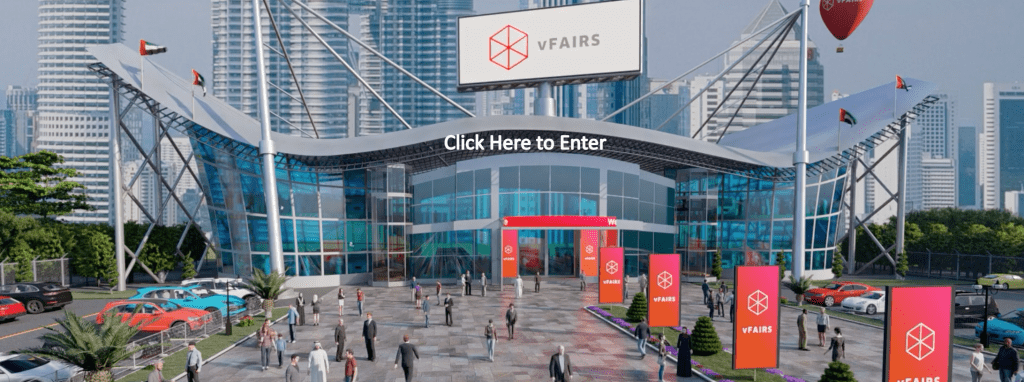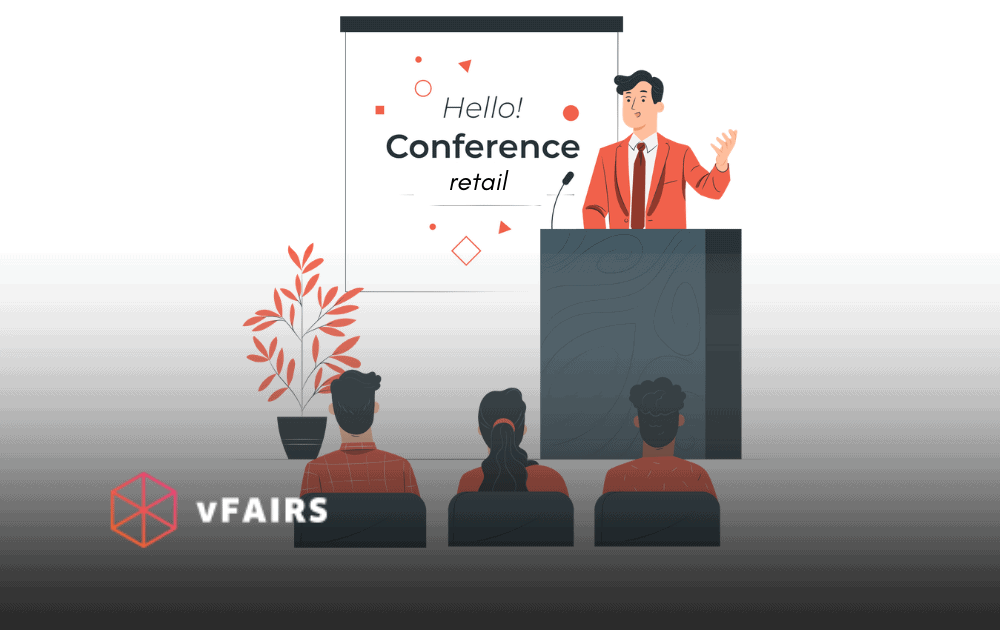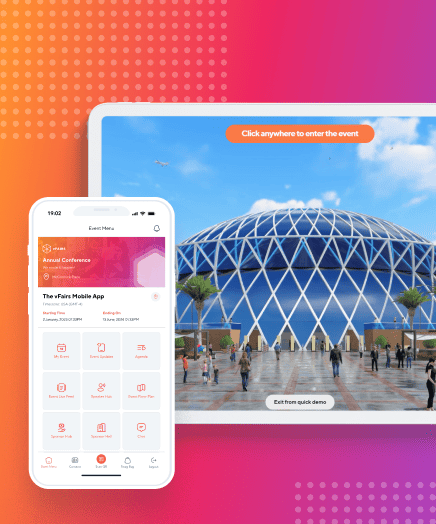On a scale of one to 10, how would you rate your level of shock after you learned that socializing and networking are now a health risk? The COVID-19 pandemic had us at a solid 10.
COVID-19 forced all conferences to go online, forcing organizers to reimagine events. Virtual events offered a safe and cost-effective way of hosting events.
But surprisingly, they also offered a convenient way of reaching global audiences, something that was previously impossible. Sophisticated virtual event technology has made it possible to host virtual events that imitate in-person events very well. This is why organizers have seen an increase in event reach and higher ROIs with virtual event platforms.
But a lot of people still swear by in-person events. They still want the interactivity and engagement that in-person meetings and speakers provide.
So, what’s a good way of combining the interactivity of in-person events with the massive reach of virtual events?
Hybrid events!
With the hopes of in-person events slowly resurfacing, event organizers are excited by the possibilities that hybrid events will unlock. This is why top virtual events platforms are going hybrid. Let’s explore what this means for you!
Why are organizers shifting to the hybrid model?
The hybrid event model is an efficient way of getting the best of both worlds – through the on-site and the virtual event. Here are some key benefits that top virtual event platforms want to offer with hybrid events:
- You can go global by making your on-site event accessible to attendees from around the world.
- Hybrid events are a cost-effective way to expand reach. You don’t have to get a bigger auditorium, increase the catering provisions, or get bigger accommodations to cater to more guests.
- They’re accessible for people who struggle to get to the venue or are restricted to their homes. Most solutions will also offer accessibility features for people with disabilities, such as inverted color contrast, text-to-speech, and text enlargement.
How to deliver successful hybrid events
Hybrid events can be tricky to pull off. You’re operating on two different platforms and that means the added burden of coordination. But there’s no need for it to be difficult if you start off right.
You’re mainly going to need three things:
- On-site logistics such as the event space, equipment, and catering.
- A virtual event platform that supports hybrid events.
- A streaming platform to connect your live feed with your virtual event platform.
1. On-site logistics
To get started, you’ll need everything that an on-site event requires. This is where the main action will be happening. Your speakers will be presenting at the actual auditorium and there will be a huge influx of attendees for you to host. Here’s a quick list of the essentials you’ll require:
- A venue large enough to house your expected audience.
- A central lobby, an auditorium (or however many you need), a networking lounge, and an exhibitor hall (if multiple organizations are presenting).
- Reliable lighting and sound equipment.
- Catering at the event.
- Marketing collateral, such as banners, and ads across the halls.
- A fast internet connection for effortless streaming.
2. Virtual event software

For the online part of things, you’ll need to incorporate virtual events software. A provider will take your on-site event and create a virtual version of it, all with a 3D event space, access to live presentations, multiple rooms, an auditorium, an exhibit hall with exhibitors, and even marketing collateral.
Top virtual event platforms will be able to offer everything that your on-site event can, without needing to be physically present at the venue. On top of that, they’ll even offer in-depth analytics, something on-site events struggle with, to help learn more about your target audience and optimize future events.
Once you’ve selected a provider, you’ll have to work with their team to bring your virtual event to life. Here’s what that entails:
- Creating the design of the virtual space according to your brand and location.
- Opting for any add-ons that you need, like gamification or integrations.
- Onboarding your partners and familiarizing them with the software.
- Collecting digital marketing collateral and resource material for the booths from your partners.
We’d recommend using vFairs for a smooth onboarding and a dynamic, hand-tailored virtual event. We’re also #1 on G2, rated highest in customer satisfaction!
3. Streaming software
You’ll also need a streaming service that can provide you with a live feed. This live feed is then connected with your virtual event platform to make it available to your online audience.
There are a lot of options that you can choose from here – Streamyard, Vimeo, Twitch, and so on. A special mention here would be Restream that lets you create a live feed that can be simultaneously broadcasted to all your socials.

Usually, a streaming service will have an embed code that you can input into your virtual event software. The virtual event software will then embed the stream within the platform and make it available to people at a specific area of the virtual venue.
How to select the right software for your hybrid event
While event organizers know how to pull off in-person events, they struggle with getting the right technology to take it live.
The most important thing here is to get a dependable video streaming platform that offers chat functionality. You can also take it up a notch and look for other features. Here are some questions you should ask before getting a virtual event platform:
- Does the application offer both live and on-demand sessions? Your online attendees will want the ability to view sessions at a time of their convenience, especially if they’re in a different time zone than you.
- Does it offer chat functionality? This is going to be an absolute must. Without the chat function, online attendees won’t be able to contribute to the discussion – that’s going to be when they exit. If the software has chat moderation, group chat, and video chat features, it’s even better.
- Does it let you promote your hybrid event? Some hybrid event solutions come with email marketing features and a targeted landing page.
- Does it offer integrations? It should let you integrate with other applications in your tech stack, especially your streaming software.
- Is it easy to set up? Online platforms can be difficult to set up. Make sure you use a product that is easy for you and all your stakeholders to use.
- Is it easy to use for attendees? Event technology can be hard for attendees to navigate through. Pay attention to the software demos you attend. Is the navigation obvious? Is it easy for attendees to engage in the sessions and other activities?
- Does it offer branding opportunities? Hybrid events see a lot of attendance online from all over the world so you wouldn’t want to miss an opportunity to promote your partners. This will also help you get more partners on board.
- Can you customize the event? Customizations are going to be key if you want your event to truly represent you and offer a more immersive experience.

Conclusion
Our learnings from the lockdown have made one thing very clear – attendees don’t need to be physically present at a venue to enjoy all its benefits. Hybrid events are going to give attendees the option to join the vent however they like. In this pursuit, getting your equipment and technology right for the event will help you deliver one that is global, visible, and engaging, all at a fraction of the cost of a singular massive on-site event.
Thinking of hosting a virtual event?
Learn how we can make your next virtual event experience unforgettable


